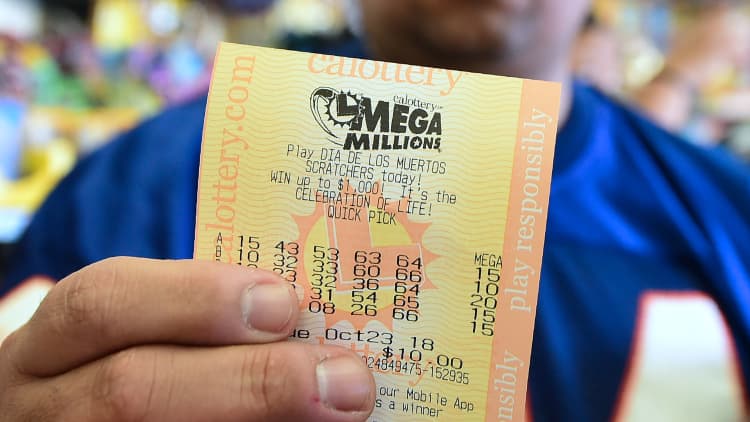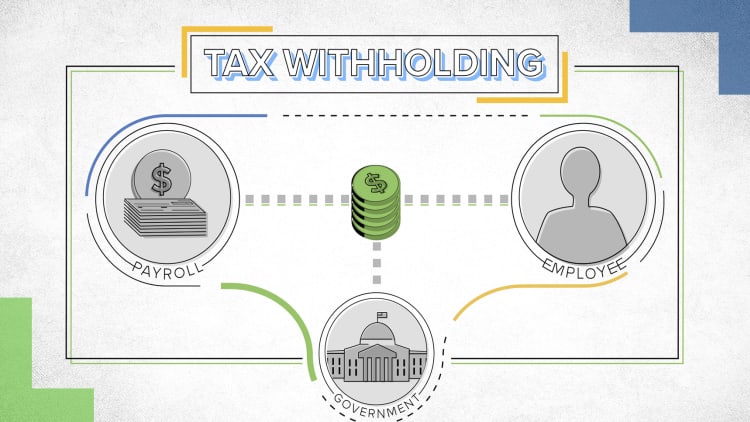If you're daydreaming about how you'd celebrate winning the Mega Millions jackpot, remember that Uncle Sam has a way of crashing the party.
After about two months of twice-weekly drawings with no one matching all six numbers, the top prize has climbed to $226 million for Tuesday night's drawing. Of course, the advertised amount isn't what you'd end up with.
Whether you take the prize as an annuity spread out over three decades or as an immediate, reduced lump sum, 24% is withheld for federal taxes. However, the top marginal tax rate of 37% would mean owing a lot more.
"There is still a sizable tax bill coming, for sure," said April Walker, lead manager for tax practice and ethics at the American Institute of CPAs.
"Winners have to plan for any additional amount that will be due next April to the IRS and the state," she said.
For Tuesday night's Mega Millions drawing, the cash option — which most winners go with — is $154.3 million. The 24% federal tax withholding would reduce that amount by $37 million.

Assuming you had no reduction to your taxable income — such as large charitable contributions — another 13%, or $20 million, would be due to the IRS at tax time.
That would be $57 million in all going to Uncle Sam, leaving you with a cool $97.3 million.
However, state or local taxes would be on top of that. They range from zero to more than 8%, depending on where the ticket was purchased and where the winner lives. In other words, you could end up paying more than 45% in taxes.
And, like the federal withholding rate on jackpot wins, the amount withheld for state taxes might also be less than what you'll owe.
"They might withhold at, say, 5%, but the rate you pay might be 6%," Walker said.
There are ways to reduce the amount of winnings that gets taxed, although not many. The charitably inclined can lower their taxable income by making a cash donation of up to 60% of their adjusted gross income and carry forward, up to five years, any excess amount.
More from Your Money Your Future:
How to keep a tax bomb from blowing up your holiday bonus
The number of 401(k) millionaires hits a fresh high
Here are the hidden benefits of a Roth IRA conversion
Some lottery winners set up their own charitable foundation or similar option, such as a donor-advised fund, and donate a portion of their windfall to it.
"That would be a way to direct charitable contributions over a period of time but take the deduction in 2019," Walker said.
Despite forking over a sizable amount to federal and state coffers, the after-tax amount would be life changing. Experts say jackpot winners should assemble a team of experienced professionals — an attorney, a tax advisor and a financial advisor — to help navigate their sudden wealth.
Meanwhile, the Powerball jackpot has climbed to $100 million for Wednesday night's drawing, with a cash option of $68.9 million.
Your chance of winning Mega Millions is about 1 in 302 million. For Powerball, it's 1 in 292 million.







